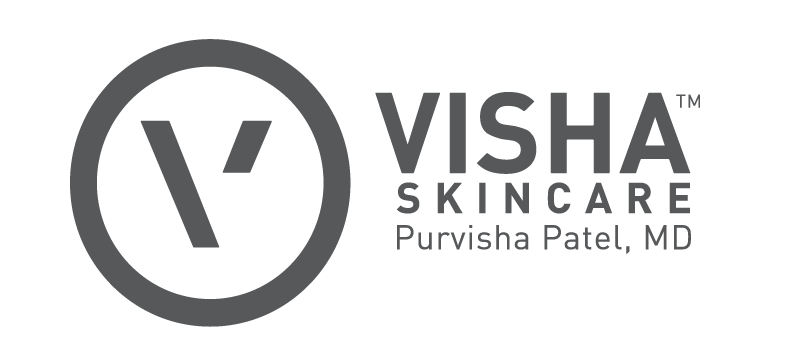
Marie Claire posted "How to Use Tea Tree Oil for Acne" featuring Dr. Purvisha Patel.
The article includes Dr. Patel’s expert commentary on the benefits of tea tree oil for acne.
How to Use Tea Tree Oil for Acne
It's basically the holy grail.
To say acne-prone skin is annoying is putting it mildly. Finding an effective spot treatment is a real feat, whether you deal with sensitivity, dry skin, hormonal acne, or all of the above. But tea tree oil for acne is a remedy to consider—especially if you've attempted to treat zits with classic over-the-counter products that result in rashes, irritation, and flakes. And while the wonderful world of tea tree oil can be smelly, it's one of those non-irritating acne treatments worthy of interweb praise.
Tea tree oil sounds like one of those hippie-dippie alternative skincare treatments that surely can't be as effective as tried-and-true ingredients like salicylic acid or benzoyl peroxide, right? Wrong. Once you dab it over whiteheads and bumps at night, you'll wake up, well, the same zits, albeit much smaller and visibly less irritated. Hey, nothing topical is going to get rid of your acne in a few hours, regardless of what the packaging may claim.
Still, as anyone with sensitive skin knows, it's a big deal to find a pimple product that doesn't irritate the hell out of your face. And tea tree oil isn't just a magical acne-fighter. Studies show that tea tree oil can be as effective as benzoyl peroxide at treating acne, but with fewer irritating side effects.
How does tea tree oil work on acne?
As a quick refresher, benzoyl peroxide—or BP—is chemically formulated to kill the acne-causing bacteria on your skin quickly. The downside: said speediness often comes at an irritating cost. However, tea tree oil (TTO) uses natural antibacterial properties to kill off bacteria at a slower, gentler rate. So why use TTO if it's slower? Because "it's also a natural anti-inflammatory," explains dermatologist Mona Gohara, M.D., associate clinical professor at Yale University, meaning it'll help calm the redness and irritation already on your skin without causing more. For anyone with hyper-sensitive skin, that's a huge, huge deal.
Of course, there are some caveats. "Tea tree oil can be really drying on some people," says Dr. Gohara—namely, if you use it undiluted, which is the biggest of no-nos. Moreover, for something that sounds so harmless (oil! tea!), it's surprisingly irritating when applied to clean, dry skin, thanks to how intensely concentrated tea tree oil is. But don't freak—as long as you dilute it before you apply it, you'll be fine.
How should I apply tea tree oil to my skin?
One of the most effective ways to apply TTO is with a damp Q-tip (to further help dilute it) after applying moisturizer at night, so there's a buffer between it and your skin. Then, swab the inside of the TTO lid with the damp Q-tip to pick up a small amount of product before dabbing it over zits. Easy, peasy.
Be forewarned, though: Tea tree oil has a strong medicinal smell that may or may not make your roommate or S.O. whine loudly. But for that sweet, sweet zit-killing relief (without the irritation)? All the whining in the world is worth it.
What do dermatologists say about tea tree oil?
Sure, the tea tree oil gets rave reviews, but what do top dermatologists think of the product? "My patients love to use it as a scalp antiseptic to decrease flaking due to psoriasis on their scalp and in their ears," says Dr. Jeanine Downie, MD and co-host of the skincare round table talk, The Gist.
Again, ensuring you're using small amounts of this stuff is key. Don't go overboard. Purvisha Patel, a board-certified dermatologist and founder of Visha Skincare, recommends not using it on your skin directly if it's super sensitive. "It's best when mixed in or diluted in other oils and skincare formulations to prevent irritation of the skin," Dr. Patel explains.
Meanwhile, Ramya Viswanathan, the Biossance Director of New Product Development, is partial to combining tea tree oil with squalane. "Tea tree oil is a quite potent ingredient on its own," she says. "We love pairing it with squalane to harness the purifying benefits while nourishing, hydrating, and replenishing the skin."
The Best Tea Tree Oil Products
Briogeo B. Well Organic Australian 100 Tea Tree Oil
Ulta Tea Tree Essential Oil
Plant Therapy Organic Tea Tree Oil
The Body Shop Tea Tree Anti-Imperfection Daily Solution
Public Goods Tea Tree Essential Oil
How often should I use tea tree oil for my acne?
"There is no correct answer for this question because everybody reacts differently," explains Julia Bao, founder and director of BAO Laboratory. So if you're looking to add the essential oil to your skincare regimen, test it on a patch of skin first to make sure you don't face any skin-tingling side effects.
Are there any risks to tea tree oil?
"Tea tree oil is also photosensitive, so make sure to avoid direct sunlight or only use at night time," adds Bao. When in contact with the sun, tea tree oil changes, not for the better. Results range from sunspots and blisters to rashes or even burns. To play it safe, stick to using it with your nighttime skincare routine only.
